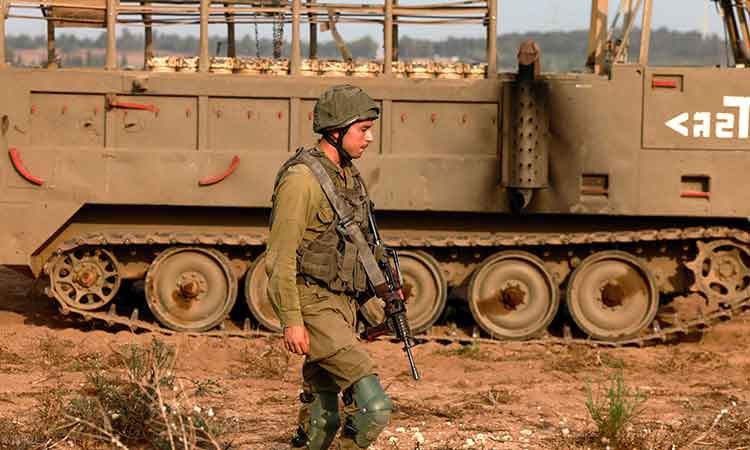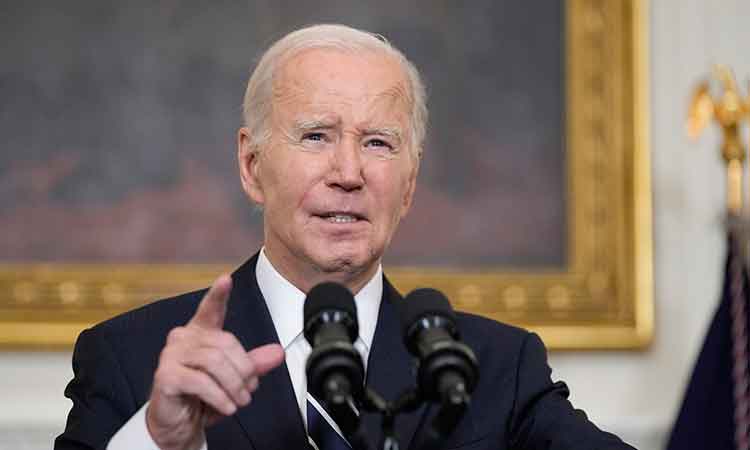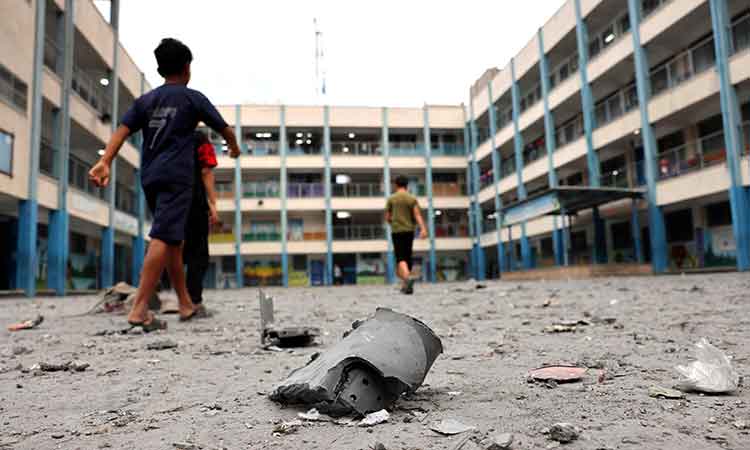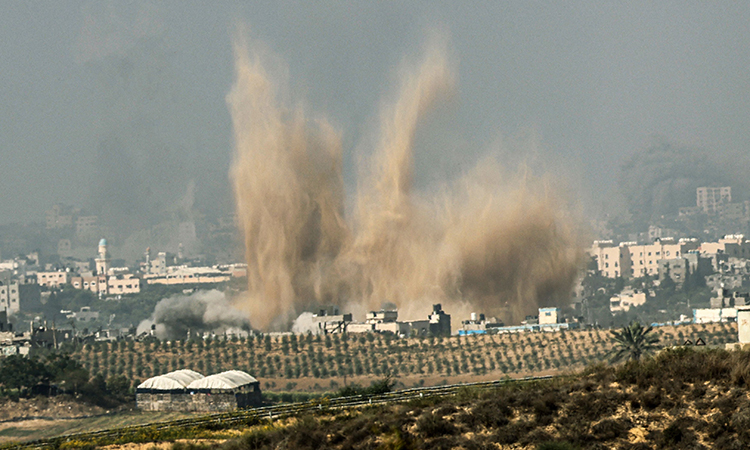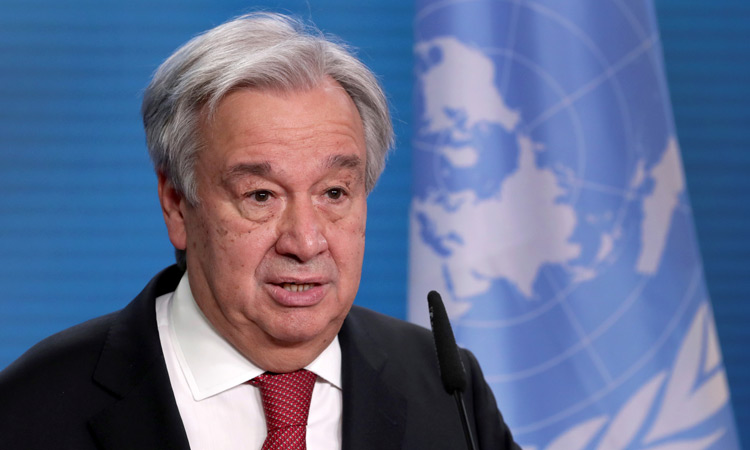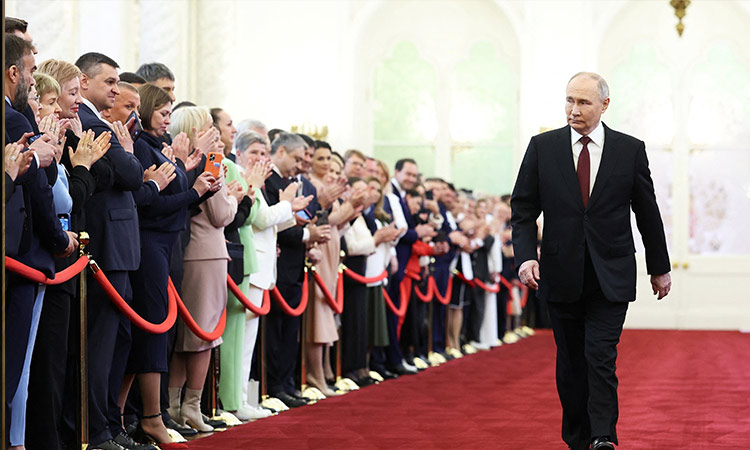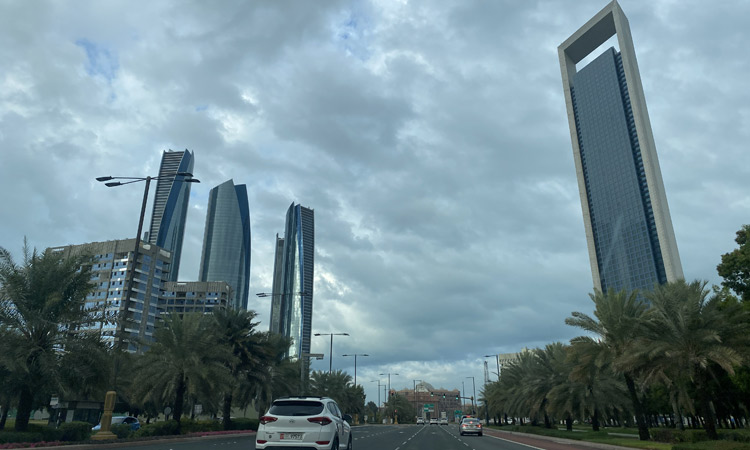Israel and Hamas agree to extend truce for two more days
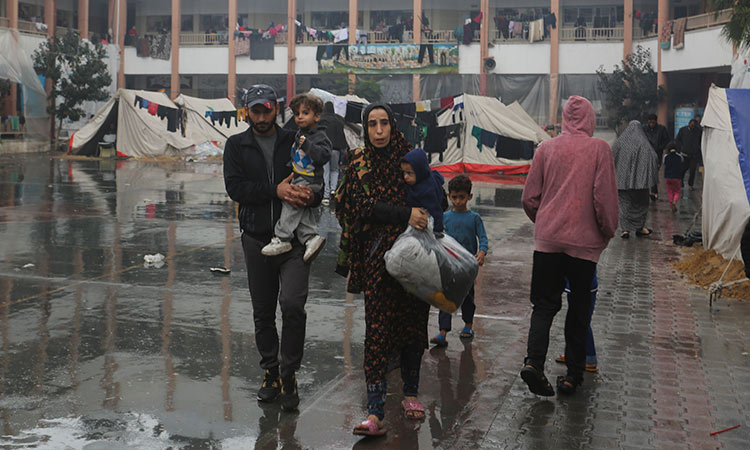
Displaced Palestinians walk inside a UN-run school during the fourth day of the temporary ceasefire between Hamas and Israel in Rafah, Gaza Strip, on Monday. AP
Israel and Hamas agreed to extend their cease-fire for two more days past Monday, the Qatari government said, bringing the prospect of a longer halt to their deadliest and most destructive war and further exchanges of Hamas-held hostages for Palestinians imprisoned by Israel.
The announcement, made by Qatari Foreign Ministry spokesman Majid Al Ansary in a post on X, came on the final day of the original four-day truce between the warring sides.
A fourth swap of hostages for prisoners under that deal was expected later on Monday. Qatar, along with the United States and Egypt, has been the key mediator in the ongoing conflict between Israel and Hamas.
Israel has said it would extend the cease-fire by one day for every 10 additional hostages released. After the Qatari announcement, Hamas confirmed it had agreed to a two-day extension "under the same terms.”
But Israel says it remains committed to crushing Hamas' military capabilities and ending its 16-year rule over Gaza after its Oct.7 attack into southern Israel.
That would likely mean expanding a ground offensive from devastated northern Gaza to the south, where hundreds of thousands of Palestinians have crammed into United Nations shelters, and where dire conditions persist despite the increased delivery of aid under the truce.
Israel will resume its operations with "full force” as soon as the current deal expires if Hamas does not agree to further hostage releases, with the goal of eliminating the group and freeing the rest of the captives, government spokesperson Eylon Levy told reporters on Monday.
So far, 58 hostages have been released during the current truce, including 39 Israelis. Before the truce, four hostages were freed, another rescued and two were found dead inside Gaza.
Hamas and other groups could still be holding up to 175 hostages, enough to potentially extend the cease-fire for two and a half weeks. But those include a number of soldiers, and they are likely to make much greater demands for their release.
On Sunday, Hamas freed 17 hostages, including 14 Israelis, and Israel released 39 Palestinian prisoners - the third such exchange under the truce.
Most hostages appeared to be physically well, but 84-year-old Elma Avraham was airlifted to Israel’s Soroka Medical Center in life-threatening condition because of inadequate care, the hospital said.
The Palestinian prisoners released were mostly teenagers accused of throwing stones and firebombs during confrontations with Israeli forces, or of less-serious offenses. Many Palestinians view prisoners held by Israel, including those implicated in attacks, as heroes resisting occupation.
The freed hostages have mostly stayed out of the public eye, but details of their captivity have started to trickle out.
The calm from the truce allowed glimpses of the destruction wreaked by weeks of Israeli bombardment that leveled entire neighbourhoods.
Footage showed a complex of several dozen multi-storey residential buildings that had been pummeled into a landscape of wreckage in the northern town of Beit Hanoun.
Nearly every building was destroyed or severely damaged, some reduced to concrete frames half-slumped over. At a nearby UN school, the buildings were intact but partially burned and riddled with holes.
The Israeli assault has driven three-quarters of Gaza’s population from their homes, and now most of its 2.3 million people are crowded into the south. More than 1 million are living in UN shelters. The Israeli military has barred hundreds of thousands of Palestinains who fled south from returning north.
Rain and wind added to the hardship of displaced Palestinians sheltering in the compound of Al Aqsa hospital in central Gaza. Palestinians in coats baked flatbreads over a makeshift fire among tents set up on the muddy grounds.
The UN says the truce made it possible to scale up the delivery of food, water and medicine to the largest volume since the start of the war. But the 160 to 200 trucks a day is still less than half what Gaza was importing before the fighting, even as humanitarian needs have soared.
Long lines formed outside stations distributing cooking fuel, allowed in for the first time. Fuel for generators has been brought for key service providers, including hospitals, water and sanitation facilities, but bakeries have been unable to resume work, the U.N. said.
Iyad Ghafary, a vendor in the urban Nuseirat refugee camp in central Gaza, said many families were still unable to retrieve the dead from under the rubble left by Israeli airstrikes, and that local authorities weren’t equipped to deal with the level of destruction.
Associated Press
